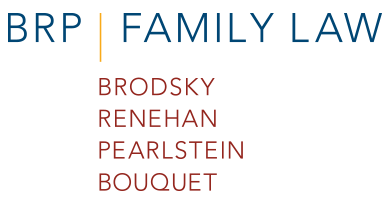Divorce often takes a physical and mental toll on everyone involved. This may eventually lead to one spouse harassing the other. When this happens, the victim of these acts may wonder how to stop their soon-to-be ex.
At Brodsky Renehan Pearlstein & Bouquet, we understand that ongoing harassment is not only frustrating, but it can be scary. If you have children, it makes the situation even worse. We recommend calling our Maryland divorce lawyers to discuss your situation and learn what options are available.
While divorce is rarely a pleasant process, there is no reason for you to have to endure ongoing harassment. We are here to help.
Harassment Defined
Cases of harassment can include many different things. For example, it can include verbal abuse, stalking, and even physical violence. While some instances are illegal, others may or may not be.
Also, while some types of harassment, like talking badly about you to your children or spreading rumors to friends, are not illegal, it does not mean they are not hurtful. The first step is understanding if your soon-to-be ex-spouse has crossed a line from legal to illegal harassment.
While harassment is frustrating in any capacity, there are some that, legally, nothing can be done about. Learn about the types here:
Illegal Harassment
- Threats of violence: Sending messages or verbally threatening to harm you or your loved ones.
- Stalking: Following you around without your consent, leading to a constant state of fear.
- Harassment involving children: Using children as a tool to harass, including manipulation and coercion.
Legal Harassment
- Nagging or incessant communication: Constantly calling or messaging, although irritating, might not always be classified as illegal.
- Spreading rumors: While morally wrong, spreading false stories might not always be criminal but could be addressed in civil court.
- Financial manipulations: Engaging in financial maneuvering that, while unethical, remains within the bounds of the law.
Guidance from Maryland divorce lawyers is recommended to effectively protect yourself and navigate this complex landscape. This is particularly true when restraining orders and other legal protections might be necessary.
Understanding Different Forms of Harassment During Divorce
Harassment from a soon-to-be ex can look different for everyone. Some common types of harassment include:
Emotional Harassment
Emotional harassment may involve behaviors such as:
- Continually belittling or insulting you.
- Making threats or trying to intimidate you.
- Manipulating your feelings and emotions to maintain control over you.
Such harassment can leave deep scars, affecting your mental health and causing depression or anxiety. It may also impact your self-esteem and reduce your confidence. As time passes and the emotional harassment continues, it can make day-to-day living unpleasant and affect your quality of life.
Financial Harassment
Financial harassment can encompass actions such as:
- Withholding money or controlling all the financial resources.
- Ruining your credit score intentionally.
- Hiding assets to affect the settlement during the divorce process.
If you are the victim of financial harassment, divorce may be longer and more contentious. It can also impact the fairness of the financial settlement. Because financial harassment may include your soon-to-be ex attempting to hide or deny assets, experts may be required to find the truth.
Harassment Involving Children
This form of harassment could entail:
- Badmouthing the other parent in front of the children.
- Using the children to convey hurtful messages.
- Attempting to turn the children against the other parent through manipulation.
Courts prioritize the well-being of the children. They can recommend and facilitate therapy and counseling for children, if needed, and seek restraining orders on behalf of the children. The harassment may also play into the final child custody ruling that is reached.
Seeking advice and representation from experienced Maryland divorce lawyers can be helpful when dealing with harassment issues.
Legal Protections Against Harassment in Maryland
In Maryland, several legal avenues are available to protect individuals experiencing harassment, especially during an emotionally charged divorce. It is essential to know your legal protections and use them when necessary.
Peace Orders and Protective Orders
In Maryland, two types of orders can offer protection: peace orders and protective orders. While both provide a legal remedy, they apply to different relationships and situations.
Protective orders are generally applied in cases involving family members and current or former spouses. Peace orders are for others who don’t share a familial or intimate relationship with you.
The Process of Obtaining a Protective Order
You must file a petition at a district court to obtain a protective order. From there, a judge may issue a temporary order that lasts 7 days but can be extended. Later, a full hearing is conducted where both parties can present their case, leading to a final protective order that lasts for a year and can be extended upon request.
Criminal Charges
Some forms of harassment cross a line, making them illegal. At this point, criminal charges may be possible.
Stalking
Stalking, a criminal offense under Maryland law (§ 3-802), involves pursuing or harassing another person seriously enough to cause fear of injury or death. If found guilty, one could face severe penalties, including imprisonment.
Electronic Harassment
Under Maryland law (§ 3-805), using electronic communication to harass or annoy someone is a misdemeanor that can carry penalties, including fines and imprisonment.
Potential Remedies for Cases of Harassment
If your soon-to-be ex is harassing you, there are legal remedies to consider. One is to sue by filing a civil lawsuit. With this lawsuit, you can request compensation from the harasser for the intentional infliction of emotional distress. However, this is a complex process. You must have solid evidence to prove your claim.
There is another option to consider when dealing with harassment – a restraining order. With this, specific actions by the perpetrator are prohibited. If the harasser violates the order, it can have serious legal implications. The individual may also face criminal charges.
Restraining Orders and Their Implications
Family law cases of any kind can be complex and emotional. Our team of experienced Maryland divorce lawyers is ready to help you act, protect yourself, and acquire a fair divorce settlement.
Harassment and Divorce: You Have Legal Options
If your soon-to-be ex is harassing you, you have legal options. Working with Maryland divorce lawyers from Brodsky Renehan Pearlstein & Bouquet will help you find the right solution. Call our office to schedule an appointment and to ensure you and your children are safe.







